Are you considering adding a chinchilla to your family? If so, congratulations on taking this first step towards providing your furry friend with the best possible life! Welcome to the world of Chinchilla Pet Care, where we’ll guide you through the essential steps to ensure the health and happiness of your furry friend.
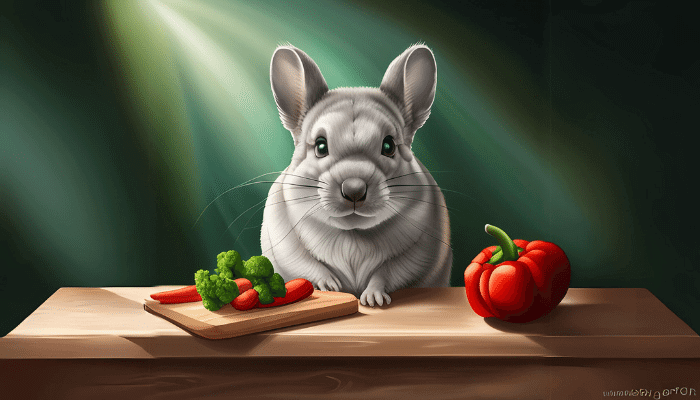
Chinchillas are incredibly intelligent and affectionate little animals that require special attention and care in order to stay healthy and happy. Luckily, you’ve come to the right place! In this comprehensive guide, we will cover all aspects of chinchilla pet care: habitat selection, diet considerations, health tips – everything you need to know about making sure your new pet enjoys a long, comfortable life with you.
Choosing the right chinchilla pet care

When it comes to adopting a chinchilla, one of the essential factors to consider is the size and breed of the furry animal. These furry creatures come in different sizes and breeds, and each type has its unique personality traits. It’s crucial to choose a species that fits your lifestyle and living conditions.
Also, ensure you provide a comfortable and safe habitat for your chinchilla to thrive and lead a healthy life. From feeding to grooming, exercise, and safety measures. By implementing these tips, you can give your pet chinchilla a happy and healthy life.
Creating a home for your chinchilla that meets their needs
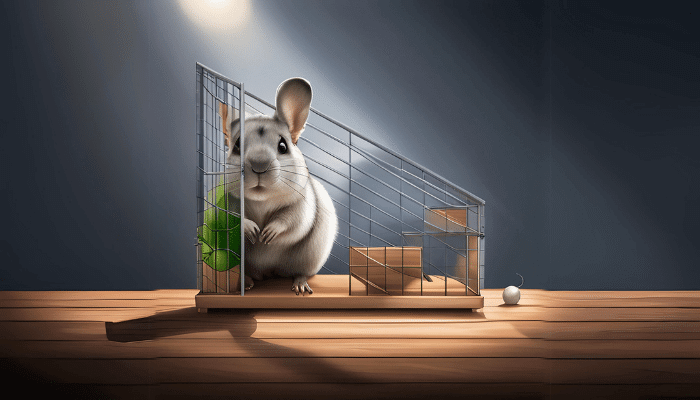
As a chinchilla owner, it’s important to provide your furry friend with everything they need to remain healthy and happy. One of the most crucial aspects of chinchilla pet care is creating a living environment that meets their specific needs.
This includes providing proper housing, comfortable bedding, and a selection of toys to keep them entertained and engaged. By following these tips and taking the time to set up the perfect habitat for your chinchilla, you can ensure that they live a long, healthy, and happy life.
Feeding your chinchilla
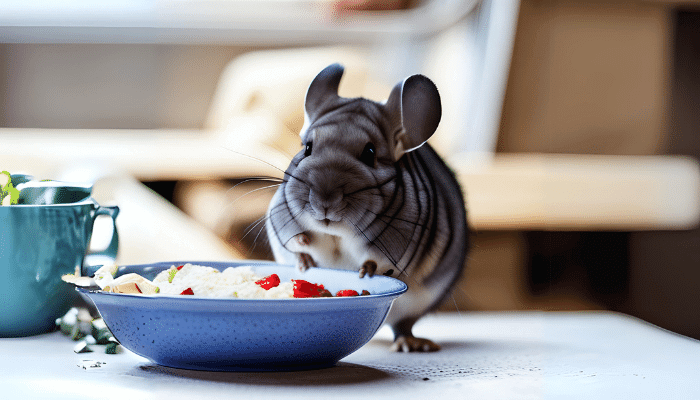
Chinchilla pets are delightful creatures that can easily win anyone’s hearts. With their soft fur and playful personalities, it is important to ensure that they are well-cared for to maintain their happiness and health. One important aspect of chinchilla pet care is their diet.
These furry creatures require a specific diet that should include a variety of foods such as grass hay, pellets, fresh water, and special treats in moderation. It is essential to avoid high-sugar or fatty treats and to stick to healthy options such as rose hips, raisins, and dried fruits. By providing your chinchilla with a balanced and nutritious diet, you can help them live a happy and healthy life in their habitat.
Some helpful tips include monitoring food intake, providing clean water, and seeking veterinary care if you notice any health concerns. With the right care, your chinchilla will thrive and make a wonderful addition to your family.
Exercise & Playtime
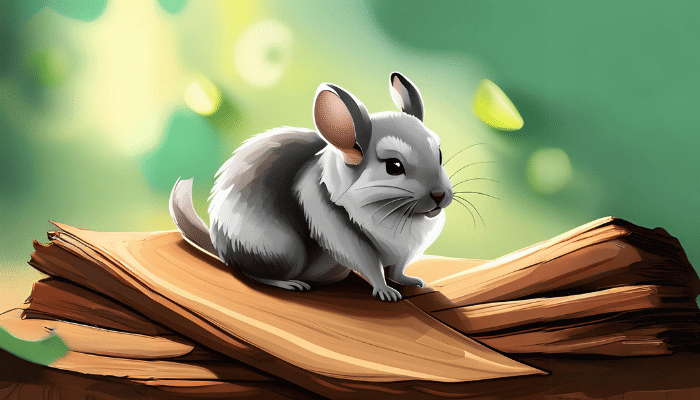
Chinchillas are energetic little creatures that require daily exercise to maintain their health and overall happiness. Some popular activities for chinchillas include running on a wheel, jumping on and off platforms, and climbing on toys or ladders. However, it is important to provide a safe and spacious environment for your chinchilla to play in.
A cage with multiple levels and plenty of toys can keep them entertained for hours. It is also important to note that chinchillas are most active during the night, so providing opportunities for playtime during their natural schedule is ideal. By incorporating daily exercise and playtime into your chinchilla’s routine, you can ensure their health and happiness for years to come.
Grooming & Hygiene
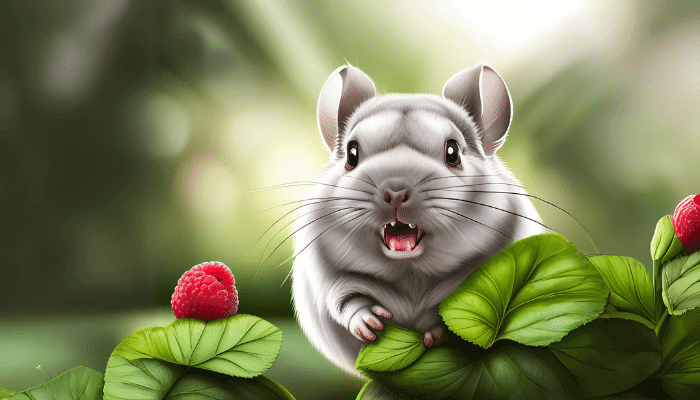
When it comes to Chinchilla pet care, maintaining good grooming and hygiene practices is essential to keeping them healthy and happy. These adorable little creatures have delicate fur that requires regular brushing and maintenance to prevent matting and tangling.
Ensuring your Chinchilla has a clean and sanitary living environment is equally important for their overall well-being. Regularly cleaning their habitat, providing fresh bedding and water, and monitoring their diet are all key aspects of proper Chinchilla health care.
Additionally, it’s important to be aware of potential health issues and to seek veterinary care at the first sign of illness. By following these tips and making sure your Chinchilla is well cared for.
Common Health Concerns & How to Treat Them
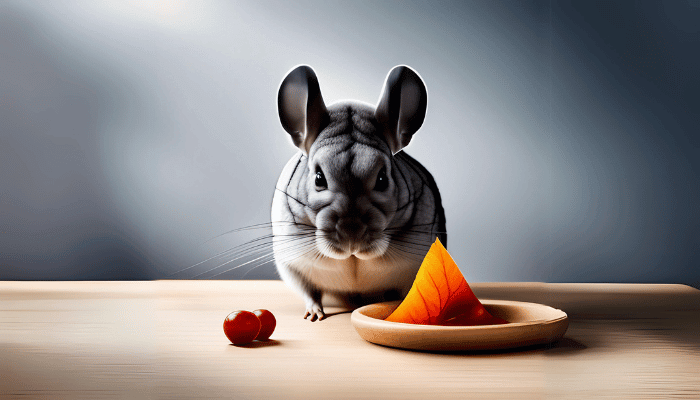
Taking care of a chinchilla can be a rewarding and joyful experience. However, as with any pet, it is important to be aware of potential health concerns. In order to ensure a happy and healthy life for your furry little friend, it is essential to pay attention to their healthcare needs.
Common ailments that chinchillas are prone to include dental issues, digestive problems, and respiratory infections. To prevent these health concerns from developing, providing a proper diet and habitat is essential.
Be sure to offer your chinchilla plenty of hay, water, and fresh vegetables as well as a clean and safe environment. And if any health concerns do arise, it is important to seek out the advice of a veterinarian who specializes in chinchilla care.
Conclusion
Chinchillas make amazing pets with their playful personalities and soft fur. However, it is important to provide them with proper care to ensure their health and happiness. By considering factors such as housing, diet, exercise, grooming, and potential health concerns, you can create a happy and healthy life for your furry friend. Remember to always seek the advice of a veterinarian who specializes in chinchilla care if any concerns arise.
Frequently Asked Questions

What is the best way to care for a chinchilla?
The best way to care for a chinchilla is by providing them with an appropriate living environment, a balanced and nutritious diet, daily exercise and playtime, regular grooming and hygiene practices, and seeking veterinary care when needed.
How much space does a chinchilla need?
Chinchillas are very active animals and require a lot of space to move around and play. In terms of housing, it is recommended to have a cage that is at least 3 feet tall by 2 feet wide by 2 feet deep for one or two chinchillas. However, the more space you can provide, the better.
What kind of diet should a chinchilla have?
A chinchilla’s diet should consist primarily of hay, as it is an important source of fibre for their digestive health. Along with hay, chinchillas should also be given a small amount of high-quality pellets designed specifically for chinchillas.
Fresh vegetables such as carrots, dark leafy greens, and occasional fruits can also be offered in moderation. It is important to avoid giving chinchilla foods that are high in sugar, fat, or grains as these can cause digestive issues and health problems. Fresh water should also always be available for your chinchilla.
How often should I handle my chinchilla?
Chinchillas are social animals and can enjoy being handled if they are properly socialized. However, it is important to handle them gently and with care to avoid causing them any stress or harm.
It is recommended to start handling your chinchilla for short periods of time at a young age, gradually increasing the duration as they become more comfortable and used to human interaction.
What kind of toys are best for my chinchilla?
Chinchillas are very active and playful animals, so it is important to provide them with plenty of toys to keep them entertained and stimulated. Some good toy options for chinchillas include wooden blocks, tunnels, chew sticks, and hanging toys made specifically for chinchillas. It is important to avoid small or sharp objects that could potentially harm your chinchilla.
What kind of chinchilla cage is best?
When choosing a cage for your chinchilla, it is important to consider their size and activity level. Wire cages with solid floors are generally recommended as they provide good ventilation and prevent injury.
The spacing between wires should be no more than 1 inch to prevent your chinchilla from getting stuck or escaping. It is also important to have multiple levels and platforms for your chinchilla to jump and play on.
How often should I clean my chinchilla’s cage?
Cleaning your chinchilla’s cage regularly is essential to maintaining their health and well-being. The exact frequency may vary depending on the size of the cage and the number of chinchillas, but generally, it is recommended to clean at least once a week.
This includes removing any soiled bedding, wiping down surfaces with a pet-safe cleaner, and providing fresh bedding for your chinchilla.
Are there any potential health risks that I should be aware of?
Like all animals, chinchillas are susceptible to certain health issues. It is important to be aware of potential risks and take preventative measures to keep your chinchilla healthy. Some common health concerns in chinchillas include dental problems, respiratory infections, and gastrointestinal issues.
Providing a balanced diet, proper hygiene practices, and seeking veterinary care when needed can help prevent these issues. It is also important to regularly monitor your chinchilla’s behaviour and consult with a veterinarian if you notice any changes or concerns.
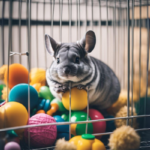
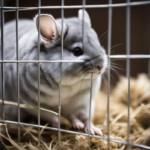
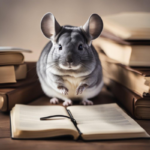
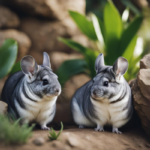



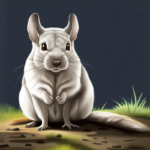

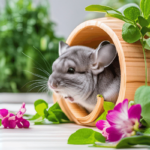

1 thought on “Chinchilla Pet Care: Ultimate Guide to Happy, Healthy Living”